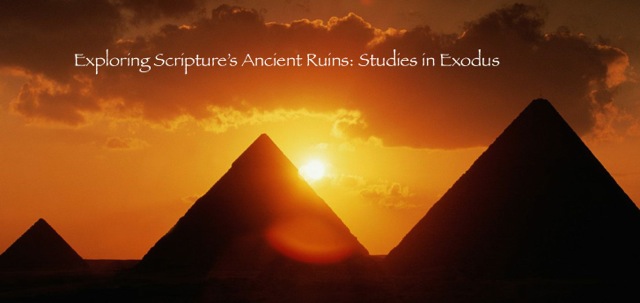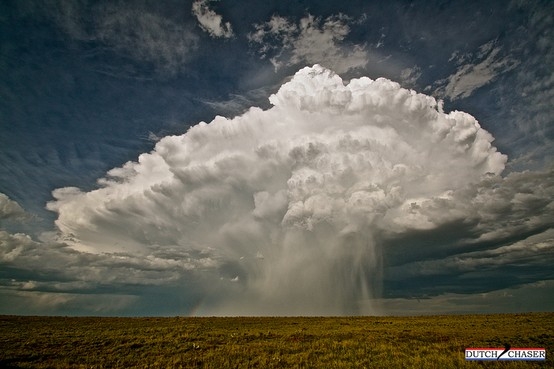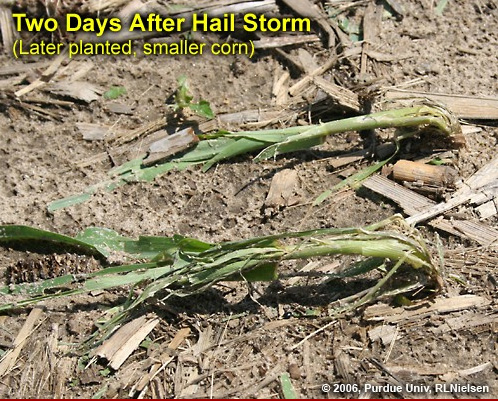©2003-2014
Fellowship
Life of Moses
Lesson 17
Early in the Morning
Ex 9:13-35
(Orig. 3/23/3 ed. 11.30.14)
Introduction…When things don’t always go according to plan or the way you would have liked for them to have gone or as easily as you would have liked or hoped for them to have gone, how do you react? Do you see these problems or resistances as meaning that you don’t have God’s blessing, or that you are being punished for not having done something right or correct, or even for some past sin or miscue? Do you not expect to see resistance or do you expect resistance? Can God allow resistances to bring him greater glory? If so, why would God do something like this? Also, why can’t life just be tough and we be overly optimistic at times? Why can’t we live or be in denial about just how hard or difficult things can be sometimes…because we want what we want, and therefore, we ignore life’s challenging realities? What about just not being perfect or God enough, and therefore not being able to see the future perfectly? Is all our suffering because we have done something wrong or not completely perfectly? Could God have other purposes…even greater purposes… by allowing things to be difficult? So what’s the key when things are difficult, challenging and painful? Quit and give up, or prayerfully persevere?
Thanks,
Your servant,
Joe
Pray
Read the Passage three times…(Note: since this is so long you might want to only read this twice).
Ask Questions (no answers)…
13 Then the LORD said to Moses, “Get up early in the morning, confront Pharaoh and say to him, `This is what the LORD, the God of the Hebrews, says: Let my people go, so that they may worship me,
Why early? “Confront” here is literally, “stand” or “take your stand before the presence (or face) of Pharaoh…” And why? The same message that God has been confronting Pharaoh with time and time again through Moses and Aaron… “Send out my people that they may serve (work or labor) for me.” The message remains the same. This comes across like a lawsuit or official protest with the protestors not giving up, and why? Because they are backed by God. Everything they are doing is being driven by God. Would they or could they have rebelled on their own eventually? Possibly? Most oppressed people groups do, but would it have been as successful? Who knows? Would it have been to worship God? Typically, that’s not why cultures resist the status quo, although in a much smaller and more incremental manner, this is what America’s early forefathers did—bravely leaving for a new land in which to worship God in a different, more biblical manner than how the state or government-supported church, in this case the Protestant Anglican Church or Church of England (which had come out of Roman Catholic [universal] Church so that King Henry V of England, partly in his attempt to secure a male heir for his throne, could divorce his first of many wives), sanctioned at the time. While not on the organized scale of Israel’s exodus from Egypt, eventually millions more would follow, albeit not all for religious reasons. In time, what begins as a collection of colonies, allegedly for reasons such as taxation without representation, morphs into a nation that does indeed rebel, find its own identity and become one of the great nations the world has ever known. Much of that greatness, many would argue, stems from its early Spiritual roots and values. So, it would seem God has more than one way of birthing rebellion, nations and cultures, including those nations and cultures that seek to worship him.
14 or this time I will send the full force of my plagues against you and against your officials and your people, so you may know that there is no one like me in all the earth.
Literally, “all my plagues to the heart of your servants (officials) and people.” Apparently, God means business. With these final plagues, beginning with this the seventh plague, God’s hammer is about to fall in a manner that Egypt has never experienced.
15 For by now I could have stretched out my hand and struck you and your people with a plague that would have wiped you off the earth.
While painful, my discipline has been mild in comparison to what is about to occur.
16 But I have raised you up for this very purpose, that I might show you my power and that my name might be proclaimed in all the earth.
The Apostle Paul seems to reference this passage and thought within his great digression concerning the Jews’ spiritual future in Romans 9-11. He compares God to a potter and Pharaoh to a lump of clay. Not all clay makes it into the pot. Some does, Israel; some does not, Pharaoh; some clay is used for noble purposes…the pot; and some not. In this case, God seems to be saying that Egypt’s stiff resistance to allowing Israel to exit Egypt in order to worship and serve God is about to bring God even greater glory when she eventually succumbs to God’s mighty hand. In other words, when we encounter resistance, even when we feel we are doing the right, divine or godly thing, this does not mean what we are doing is wrong or not blessed by God. Rather, that very resistance when overcome by God’s mighty hand only brings God greater glory. In other words, be careful of misinterpreting resistance’s purpose.
17 You still set yourself against my people and will not let them go.
18 Therefore, at this time tomorrow I will send the worst hailstorm that has ever fallen on Egypt, from the day it was founded till now.
19 Give an order now to bring your livestock and everything you have in the field to a place of shelter, because the hail will fall on every man and animal that has not been brought in and is still out in the field, and they will die.'”
So here is the warning—mercy in the midst of judgment. No doubt, though Scripture does not say so explicitly, except for perhaps 2 Peter 2:5 which refers to Noah as “ a preacher of righteousness,” Noah’s long, tedious labor in constructing the ark must have a served as a warning about what God was intending to do. And in fact, throughout Scripture, the story is repeated again and again. God warns before unleashing his judgment. He gives man every opportunity to repent from his evil and turn back to his Creator. The same is true here. In warning Pharaoh, God is being merciful. My judgment is coming and will come. Here is how you can survive it. But make no mistake about it, it is coming.
20 Those officials of Pharaoh who feared the word of the LORD hurried to bring their slaves and their livestock inside.
Interesting to note that now even Egypt is divided. Some believe; some don’t. Some will be saved; some will not. Even among the pagans, who fears God and who foolishly refuses to revere him? One can assume that either dating back to the days of Joseph, as well as, now that there had to be a bleeding over or through of the worship of Yahweh God amongst the Egyptian people. Note: Even today, there is still a very strong Coptic Church presence that endures religious persecution within a Moslem-dominated Egypt.
21 But those who ignored the word of the LORD left their slaves and livestock in the field.
22 Then the LORD said to Moses, “Stretch out your hand toward the sky so that hail will fall all over Egypt –on men and animals and on everything growing in the fields of Egypt.”
23 When Moses stretched out his staff toward the sky, the LORD sent thunder and hail, and lightning flashed down to the ground. So the LORD rained hail on the land of Egypt;
24 hail fell and lightning flashed back and forth. It was the worst storm in all the land of Egypt since it had become a nation.
Hailstorm by Peter Gude
25 Throughout Egypt hail struck everything in the fields –both men and animals; it beat down everything growing in the fields and stripped every tree.
26 The only place it did not hail was the land of Goshen, where the Israelites were.
Here is the big rub. Had hail destroyed much of Goshen, then Pharaoh could have rationalized this devastating hail storm as perhaps a judgment of one of the Egyptians’ many gods, but not in this case.
27 Then Pharaoh summoned Moses and Aaron. “This time I have sinned,” he said to them. “The LORD is in the right, and I and my people are in the wrong.
“Sinned” is the Hebrew word “chata’” which means to “miss, miss the way, go wrong, incur guilt, forfeit, bear loss, to induce or cause sin, bring into guilt, condemnation or punishment, to miss oneself, lose oneself, wander from the way.” It can also mean to “make a sin offering or purify from sin or oneself from uncleanness.” Clearly it is an admission of guilt. Someone has done something that is clearly religiously or morally out of bounds.
“Wrong” is the Hebrew word “rasha’” which means “wicked, criminal, guilty, hostile to God or man.” For a transitional, temporary moment, Pharaoh gets it right. God was right; I was wrong. I would argue that this is basis, or rather the beginning of man’s salvation…the admission of truth…God is right; I am wrong. And yet there still has to be an atonement or payment for sin or evil. Sin must be judged as evil. Justice must be served or defended. This is where Jesus, and by extrapolation, Christ’s church, differs from the rabbis. At least early rabbinical thought taught that man’s “repentance” or turning back to God from evil is his atonement. I would argue differently. Both are required. Without atonement for sin, repentance, as demonstrated here by Pharaoh, is just repentance and, apparently, can just as easily turn back from back to what is sinful or wrong again.
In contrast, the New Testament teaches that through Christ’s sacrificial death, sin has been paid or atoned for—all sinned–thus when a person turns back to sin, the problem is no longer atoning for sin, but a gradual growing up or maturing, much as a child, hopefully, grows up and learns to make better and better choices, but to assume that the child will not make any mistakes is ludicrous. Salvifically, sin has been paid for; on the other hand, sanctificationally, learning to make better choices, or choosing righteousness over sin or evil, is a gradual, ongoing journey.
28 Pray to the LORD, for we have had enough thunder and hail. I will let you go; you don’t have to stay any longer.”
Pharaoh now cries Uncle!
29 Moses replied, “When I have gone out of the city, I will spread out my hands in prayer to the LORD. The thunder will stop and there will be no more hail, so you may know that the earth is the LORD’s.
I was tempted to forget that the hailstorm has continued to rage this whole time—that is was not just a storm that had come and went, but was still going on, inflicting damage on everything not protected. No wonder Pharaoh was desperate for relief.
30 But I know that you and your officials still do not fear the LORD God.”
Interesting that Moses knows that Pharaoh will change his mind again.
31 (The flax and barley were destroyed, since the barley had headed and the flax was in bloom.
32 The wheat and spelt, however, were not destroyed, because they ripen later.)
This tells us what we already know—that these events occurred in the early spring.
33 Then Moses left Pharaoh and went out of the city. He spread out his hands toward the LORD; the thunder and hail stopped, and the rain no longer poured down on the land.
34 When Pharaoh saw that the rain and hail and thunder had stopped, he sinned again: He and his officials hardened their hearts.
35 So Pharaoh’s heart was hard and he would not let the Israelites go, just as the LORD had said through Moses.
(Note: There are a lot of verses here; don’t get too bogged down. Keep it moving, even if you need to move on the next question.)
Who’s?
Where’s?
When’s?
What’s?
- God commands Moses to get up early, while the hailstorm is still raging and raining down disaster upon the land of Egypt to confront Pharaoh again about letting Israel go out into the desert to serve God.
- God adds that, although he could have destroyed Egypt earlier, he is about to send all his plagues upon the heart of Egypt’s officials and people so that they will know that there is no other like God.
- But to demonstrate his glory and power, he has allowed Egypt to resist.
- This time he is about to unleash such a fury that everything outside will be destroyed, including crops and livestock.
- Those that feared God took precautions, but those that didn’t failed to bring in their livestock and servants.
- Then the Lord tells Moses to extend his hand toward the sky, the hailstorm is divinely unleashed upon Egypt except from Goshen where God’s people dwell.
- Eventually, Pharaoh has had enough of the destructive hailstorm and summons Moses to confess to him his sin before the Lord and to ask Moses to pray to God on his behalf.
- Moses agrees to do this, but he also informs Pharaoh that he knows that Pharaoh and his servants do not truly fear the Lord.
- Moses leaves, spreads out his hands and the hail storm ceases, but once the pain is gone, Pharaoh once again hardened his heart and sinned again by not allowing the Israelites to leave just as the Lord had predicted that he wouldn’t through Moses.
Summary…God unleashes a violent hailstorm that destroys much of the land outside of Goshen where the Israelites are living. For a moment, while the hailstorm rages, Pharaoh confesses his sin, but once Moses intervenes on behalf of a seemingly repentant Pharaoh and the hailstorm ceases, then Pharaoh and his officials once again hardened their hearts and decide to not let the Israelites leave Egypt.
Bottom line…Despite a very destructive hailstorm that causes Pharaoh to momentarily repent, when the hailstorm ceases, Pharaoh once again hardens his heart, goes back on his word and refuses to allow the Children of Israel to leave Egypt so that they can worship their God. But God is not fooled. He knows that Pharaoh’s repentance is short-lived, but instead of being victimized by Pharaoh’s short-lived repentance, God will use it to bring greater glory to himself.
Why’s?
- God knows what is going on. He is not fooled, even by kings and their momentary fickle decisions.
- Instead God uses man’s greater resistance to his authority and righteousness to gain even a greater glory for himself when he uses his might to overwhelmingly overcome man’s resistance.
- Therefore, we ought not be intimidated because bad things or what we might interpret as bad things are occurring to us. How do we know, much like Pharaoh, that God is not allowing this evil to occur to demonstrate greater glory and therefore greater dependence upon him as he sees us through the trials. In other words, don’t always assume suffering is punishment by God. It could be just the opposite. It could also be that we still live in a fallen, sinful world. Evil happens. People can tend to be selfish. We all can, and therefore look out mainly for our interests over others, even to the point of going beyond the normal moral bounds where we cause other people, both good and bad to suffer. We need to repudiate this mindset in which suffering is because we have done something wrong. That was taken care of a long time ago, when Adam and Eve chose and sin was conceived into the heart of man. What does matter is our dependence upon God, despite the cause of the suffering. That is our true salvation. Evil will occur. Evil is occurring. Some of it is our own; some of it is others; some of it is because evil does exist. But let’s stop this over-egocentric point of view that when things begin to go bad that God is trying to send us a message that we are NOT doing something right. We are almost always doing something NOT right.
- Pain, on the other hand, as Pharaoh demonstrates, does get our attention, but it does not always produce genuine human repentance, humility or Spiritual change. When the pain is on, people are sorry and want it to stop; when it goes away, we go back to our old ways. We don’t like pain.
- As God is with Pharaoh, we don’t have to shoot our strongest missiles first. Rather, as repeated defiance and recanting one’s previous repentance occurs, grow the strength of our discipline or intervention.
- Presume a process of repentance. Most repentance is not a one time thing, but is a process. There could be many falls. Hopefully, if the pain is applied consistently, the person the discipline is being applied to will eventually break, become humble and teachable. But don’t start out too strong. Turn the pressure up gradually. Learning is a process. Change is a process.
- God can and does bring about physical destruction…for his purposes.
So What’s? How does this truth personally apply to one of my life’s struggles?
Thanksgiving…I have much to be thankful for. My mother-in-law is getting moved into her new digs, and my Spiritual daughter awaits her. Both have been processes, embedded with their own inherent joys, fears, setbacks, change of minds. Gray. Not black and white. Lots of gray. Lots of subtlety. Lots of process. Lots of going back and forth. And that is okay. Love thinks. Love ponders. Love endures. Love suffers. Love corrects. Love prays. Love forgives. Love sees a process.
I am learning much both within the pages of Scripture and teaching and in applying love and what I have been learning to real life. Thank you, God, for your provision. Thank you, God.
Struggle… My precious wife and sister are having to navigate the painful and difficult process of helping their mother let go of a bunch of stuff. O, Lord have mercy. As difficult and up-in-the-air as this process has been, each new stage has its own challenges, some less difficult; some more difficult. Everything else…just trust the Lord. Be calm. Have a plan, but be flexible…be very flexible, not to pull off the plan, but be prepared for temptations and distractions, changes etc. No one can see the future perfectly.
Principle or Truth… God is not fooled; greater resistance, greater glory; pain is not always because we have done something wrong, but it definitely gets our attention; repentance can be a process…
Application…Getting Rhonda’s mother moved and settled in, taking care of her; making sure she feels secure and loved and that her basic needs, including her healthcare, are provided for; guiding my Spiritual daughter through her Spiritual recovery process and the giving birth of her pre-born baby; finishing the Sustainable Love manuscript; guiding Fellowship through another year of discovering God’s plans for our body…all these things have their own extrinsic and intrinsic resistances…and therefore, their greater glory when gradually and sustainably overcome and accomplished because we were desperately depended upon the Holy Spirit’s peace, power and inspiration in the midst of the process. Be calm in the moment. Trust God. Seek him. Be obedient to his leading. Allow the chips to fall where they may because regardless how they fall, I am not alone, and he can lead and guide me through the next step. Peace. Peace. Breathe. Relax. Trust. Seek. Listen. Obey. Trust. Pray. Rest. Wait…again and again and again until it becomes as natural and instinctive as breathing and eating.
What about you? Struggle? Truth? Application?
What about your students? Their struggles (list a few; think about several of your students)?
Applications?…
Scripture quotations, unless noted otherwise, are taken from the Holy Bible: New International Version‚ NIV‚ Copyright 1973, 1978, 1984, International Bible Society. Used by permission of Zondervan Bible Publishers. All rights reserved.





